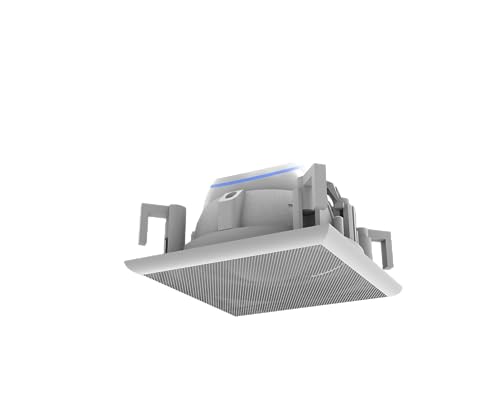Choosing the right smart speaker for your home can feel like navigating a tech jungle. With options like Apple’s HomePod and Amazon’s Alexa, it’s easy to get overwhelmed. Both offer unique features that cater to different needs, making the decision even trickier.
Are you looking for superior sound quality or a more versatile smart assistant? Maybe you’re curious about compatibility with other devices in your home. This guide will break down the key differences between HomePod and Alexa, helping you decide which one fits seamlessly into your lifestyle.
Overview of HomePod and Alexa
As a homeowner and designer, you understand the need for a smart speaker that fits both performance and aesthetics. Comparing Apple’s HomePod and Amazon’s Alexa, both offer unique benefits. Here’s a quick look at each.

Features of HomePod
HomePod stands out with its premium sound quality. It uses advanced audio technology to deliver rich, clear music. You can control it via Siri for smart home integration. The design complements modern interiors. HomePod supports Apple Music and provides access to Apple’s ecosystem.
Features of Alexa
Alexa offers versatility with numerous compatible devices. It supports voice commands for various tasks, like setting alarms and controlling smart home gadgets. Alexa integrates with Amazon services, including Prime Music and shopping. It features multiple versions, from Echo Dot to Echo Show, accommodating different needs and spaces. Alexa’s skills enable additional functionalities through third-party apps.
Both HomePod and Alexa bring unique smart solutions, catering to specific preferences and environments.
Design and Build Quality
Both HomePod and Alexa cater to different aesthetics and build qualities, appealing to varied home environments.
HomePod Design
You notice the HomePod features a cylindrical shape with seamless mesh fabric. It measures 6.8 inches in height and 5.6 inches in diameter, making it compact but substantial. The mesh fabric isn’t just for looks; it enhances sound quality. The top touch surface offers intuitive media controls. It’s available in white and space gray, blending well in modern interiors. The build feels sturdy and premium, reflecting Apple’s focus on high-end materials.
Alexa Design
You find Alexa speakers come in various shapes and sizes, like the Echo Dot, Echo Show, and Echo Studio. The Echo Dot is small and puck-shaped, while the Echo Show includes a screen for visual feedback. Alexa devices generally use a mix of fabric and plastic, offering a practical yet stylish design. Colors range from charcoal to sandstone, accommodating diverse décor preferences. Although the build is lighter, it remains durable, suitable for frequent use around the home.
Sound Quality Comparison
When you’re looking at sound quality, both HomePod and Alexa offer distinct experiences.
HomePod Sound Quality
HomePod provides superior sound. Its 360-degree audio fills your space with rich, clear sound. An array of seven tweeters and a high-excursion woofer deliver deep bass and accurate highs. It automatically adjusts audio based on room acoustics, ensuring optimal performance in any space. Siri integration ensures hands-free controls without compromising sound quality.
Alexa Sound Quality
Alexa devices vary in sound quality. The Echo Studio stands out with its Dolby Atmos support, delivering immersive sound. Echo Dot and Echo Show offer decent audio but aren’t as powerful as the HomePod. Alexa devices excel in producing clear mids and highs but may lack the deep bass of a HomePod. Adjust EQ settings in the Alexa app for better sound customization.
Sound Customization
HomePod offers limited manual customization, focusing on automatic adjustments for sound quality. It suits listeners who prefer seamless, high-quality audio without manual tweaks.
Alexa devices provide more customization options through the app. Change treble, midrange, and bass settings to match your preferences. This flexibility is ideal if you enjoy fine-tuning your listening experience.
Compatibility with Other Devices
« Discover the Top 5 Toasters for Perfect Frozen Waffles Every Morning
The Ultimate Guide to Choosing a Travel Jewelry Case with Initials: Style, Security, and Sustainability »
The HomePod integrates best with Apple ecosystem devices. It enhances audio quality for Apple Music, Apple TV, and other Apple services.
Alexa connects easily with a variety of smart home devices. You can link Alexa with multiple streaming services, such as Spotify and Amazon Music. This versatility makes it suitable if you use different music platforms or smart devices.
Choose HomePod for superior, automated audio quality and Alexa for flexibility and customization in sound settings.
Smart Home Integration and Compatibility
Integrating HomePod in Your Home
HomePod interfaces smoothly with Apple devices, enhancing user experience. Siri’s voice control manages Apple HomeKit devices seamlessly. Accessories like lights, locks, and thermostats from compatible brands integrate well. AirPlay allows multi-room audio with ease. For iOS users, the automation provided by HomeKit and HomePod is unparalleled.
Integrating Alexa in Your Home
Alexa supports numerous brands and device types for broader compatibility. Voice commands through Alexa control smart home gadgets like lights, cameras, and speakers. The Alexa app facilitates easy setup and management. Amazon’s Zigbee integration enhances connectivity options. Whether you use Android or iOS, Alexa offers expansive compatibility.
Voice Assistant Performance
Siri on HomePod
Siri offers seamless integration with Apple devices. Controlling HomeKit-enabled devices is intuitive and straightforward. Siri excels in managing multi-room audio via AirPlay. If you use multiple Apple devices, Siri provides a unified experience. Apple’s focus on privacy means Siri processes requests locally.
Alexa’s Capabilities
Alexa stands out with extensive compatibility across various brands. The Alexa app simplifies smart home setup and management. Alexa supports numerous third-party skills, enhancing functionality. If you value cross-platform usability, Alexa is versatile. Integration with Zigbee creates a broader connectivity range.
Pricing and Value for Money
HomePod and Alexa offer distinct value propositions. HomePod costs around $299. Alexa devices start as low as $49, with higher-end versions at $99 and $149.
You get premium sound and Siri integration with HomePod. If you value high-quality audio and seamless integration with Apple products, HomePod provides excellent value. It’s a one-time investment for a premium experience.
Alexa offers flexibility and affordability. Echo Dot provides basic Alexa features for under $50. Echo and Echo Plus offer improved audio and smart home hub capabilities for higher but still reasonable prices.
HomePod focuses on sound quality and ecosystem integration. If interactive home design includes multi-room audio and Apple device control, consider HomePod. It justifies its higher cost with superior sound and seamless Apple integration.
Alexa’s diverse device range matches various budgets. You can start small and expand without a significant initial investment. Setting up an Alexa smart home system is cost-effective and scalable.
For a tight budget, Alexa’s entry-level devices offer plenty. Even the Echo Dot can control smart home devices, play music, and answer queries. More advanced models provide better sound and additional features, still at competitive prices.
In the long run, both devices can benefit smart home designs. If your home relies on Apple products, HomePod maximizes value. For broader compatibility and incremental upgrades, Alexa devices are ideal.
In essence, your choice hinges on budget, desired features, and ecosystem compatibility. Consider the cost upfront and the long-term value each system provides. Evaluate what’s more important in your home designs: premium quality or flexible affordability.
Conclusion
Choosing between HomePod and Alexa really comes down to your personal preferences and needs. If you’re deeply invested in the Apple ecosystem and crave top-notch audio quality, HomePod might be your perfect match. Its seamless integration with Apple devices and superb sound make it a great choice.
On the other hand, if flexibility and affordability are what you’re after, Alexa offers a wide range of options to fit any budget. Its compatibility with numerous brands and devices, along with the ease of setup, makes it a versatile addition to any smart home.
Ultimately, whether you prioritize premium sound or versatile connectivity, both HomePod and Alexa have something unique to offer.















